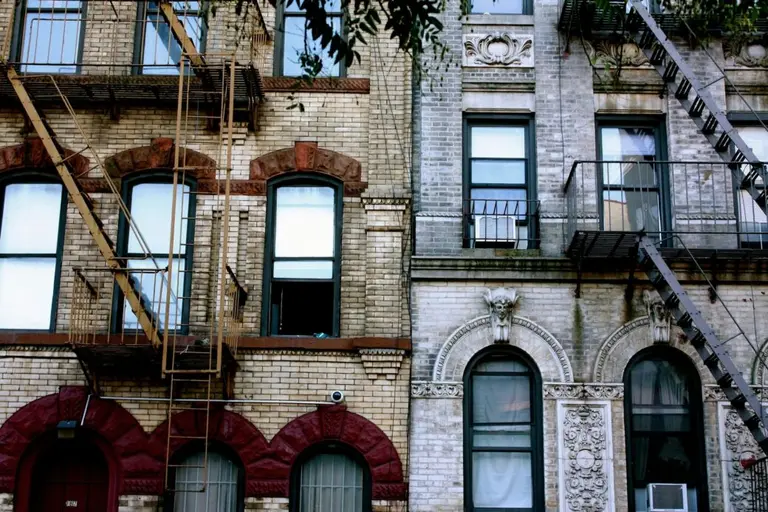NYC Council bill wants to block evictions for unpaid rent for a full year

Photo by Lucia Gherra on Unsplash
Amidst calls for a statewide rent strike, the New York City Council will introduce a COVID-19 relief package tomorrow that extends the eviction moratorium for those affected by the coronavirus crisis until April 2021. “We must #cancelrent, but in the meantime, the Council is working to give tenants peace of mind so New Yorkers won’t suffer irreparable harms,” tweeted Council Speaker Corey Johnson this afternoon. The bill, which the Council will introduce tomorrow at their first-ever remote hearing, extends the amount of time both residential and commercial tenants have to repay rent and blocks debt collection.
The current eviction moratorium was put in place by Governor Cuomo in mid-March. It applied first to residential tenants and then was expanded to include commercial tenants. However, this only protects tenants through roughly mid-June. “Without rent forgiveness, thousands of renters will face eviction once these temporary protections end,” said Michael McKee, Treasurer of the Tenants Political Action Committee. But he added that the City Council package “offers a helpful step.”
Speaker Johnson is sponsoring the portion of the bill that extends the date through which evictions would be blocked. “The City must ensure that its impacted tenants are protected from evictions in the long-term as they get back on their feet and recover from the harmful impacts of this crisis,” it reads in a press release. The actions would apply to all New Yorkers, including residential and commercial tenants, for the duration of the crisis and would bar marshals and sheriffs from collection debts and performing evictions until April 2021 for any New Yorker impacted by COVID-19. Johnson is also co-sponsoring a section that would protect tenants from COVID-related harassment and discrimination.
Johnson’s #cancelrent hashtag refers to a mounting call for a May 1st statewide rent strike that has the ultimate goal of pressuring Governor Cuomo to cancel rent until the crisis has ended. As 6sqft reported last week, “Led by the Upstate Downstate Housing Alliance, the coordinated protest is seeking cancellation of rents for at least four months, a freeze on rent for every tenant, and a plan to house homeless New Yorkers.” The group hopes that one million New Yorkers will not pay May’s rent.
Though Mayor de Blasio has said he does not support a rent strike, he called on Governor Cuomo last week to act on several rent relief proposals that include deferring rent for 12 months, using security deposits in lieu of rent, enacting a rent freeze on rent-stabilized units, and extending the moratorium on evictions for an additional two months once the pandemic ends.
Other politicians have also been vocal on the issue. Last month, State Sen. Michael Gianaris introduced a measure that would suspend rent payments for 90 days for tenants and small businesses affected by the pandemic. And earlier this month, State Sens. Brad Hoylman and Liz Krueger and Assembly Member Jeffrey Dinowitz announced the “NYS Tenant Safe Harbor Act,” that would ban landlords from evicting tenants for unpaid rent during the state of emergency and for six months afterward.
After the City Council introduces the relief package tomorrow, they will hold hearings on each of the bills over the next week and a half. The full package includes the following bills:
- NYC Essential Workers’ Bill of Rights, which would require employers to pay premiums to certain essential non-salaried workers and extend paid sick leave to independent contractors.
- Protecting New York City’s Renters
- Prioritizing Public Health, which would require the City to provide each single adult homeless individual with a private room through the end of the pandemic and mandate 75 miles of open streets throughout the city.
- Protecting New York City’s Small Businesses, which would suspend personal liability on commercial leases and suspend sidewalk cafe fees.
The eviction bill would require approval from the State.
RELATED:



























